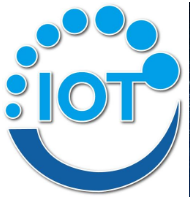The official license of the virtual operator (hereinafter referred to as "virtual business") that has been piloted for nearly five years has finally been issued! A few days ago, the official website of the Ministry of Industry and Information Technology issued a notice on "The Ministry of Industry and Information Technology Issues Mobile Communication Resale Business Licenses to 15 Enterprises", including subsidiaries of Xiaomi, Alibaba Cloud Computing, HNA, and JD.com . As early as May 2013, the Ministry of Industry and Information Technology issued a mobile communications business resale plan. Since the first batch of licenses were issued at the end of 2013, a total of 42 companies have obtained virtual business pilot licenses in 5 batches. Currently, mobile phone numbers starting with 170 and 171 on the market are virtual quotient numbers. Although judging from the current changes in the domestic communications industry, this time the license came a bit late, but for virtual commerce, it has entered a new stage of development. By Wen Jing, All Media Correspondent, Guangzhou Daily
The first batch of licensed companies signed contracts with China Unicom
The mobile communication resale business is commonly known as a virtual operator, which refers to the telecommunications services that are purchased from basic telecommunications operators that have mobile communication networks, repackaged into their own brands, and sold to users. In other words, companies buy communication services from traditional operators and repackage and sell them to users under their own brands, but they are essentially the operators' calling cards. It is reported that the first 15 companies to obtain licenses are all virtual businesses that have signed contracts with China Unicom.
In fact, the original intention of introducing virtual quotient was the Ministry of Industry and Information Technology to encourage and guide private capital into the telecommunications field. Since the first batch of licenses were issued at the end of 2013, a total of 42 companies have obtained virtual operator pilot licenses in 5 batches. The previously announced pilot period for virtual operators is until December 31, 2015. For various reasons, it was not announced until the end of April this year that the pilot was terminated.

According to recent survey data from communication media, as of June 2018, my country’s virtual operator users have exceeded 68.81 million. In the first half of 2018, a net increase of 8.36 million was a net increase of 1.39 million online users, which was basically the same as in 2017. It was the same, but decreased compared to 2015 and 2016.
The price advantage of virtual operators is not obvious
Push new business to target the Internet of Things
Regarding the issue of the first batch of licenses after a trial period of nearly five years, there are many opinions in the industry that it is a bit late. In the past five years, my country's communications industry has undergone earth-shaking changes, and the three major operators have undergone tremendous changes in business and traffic. Especially the current demand for the use of mobile Internet by the general public. At the same time, since the beginning of this year, the three major operators have entered the stage of drastically reducing fees and speeding up. Although there are still questions about tariffs and network speeds, I believe that with the policy The in-depth advancement of the future will have a better experience in the future. However, the initial selling point of virtual quotient must be "price", but now this advantage seems to be less obvious. In addition, during the pilot period, there was no shortage of phone fraud and spam messages. At the moment when basic operators are vigorously striving for services, the profit prospects of virtual business are not optimistic.
According to the reporter's understanding, in addition to introducing various preferential measures to attract users into the ecosystem, virtual business is also targeting the Internet of Things. For example, Xiaomi, Alibaba Cloud Computing, HNA Communications, Leyu Communications, Minsheng Communications, etc. are all in the Internet of Things. Launch different businesses to attract more young consumers.
Of course, although there are different voices in the industry, the issuance of the first batch of licenses indicates that the mobile communication resale business has entered a new stage of development.
Heated Mouse Mat,Heated Computer Mouse Mat,Usb Heated Mouse Mat,Heated Mouse Pad Warmer
Ningbo Sinco Industrial & Trading Co., Ltd. , https://www.newsinco.com